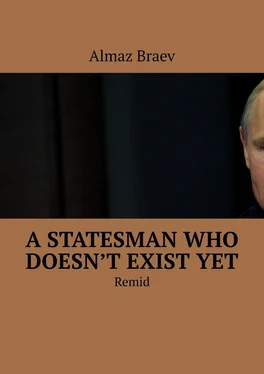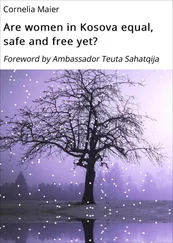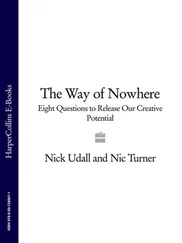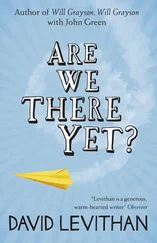Аlmaz Braev - A statesman who doesn’t exist yet. Remid
Здесь есть возможность читать онлайн «Аlmaz Braev - A statesman who doesn’t exist yet. Remid» — ознакомительный отрывок электронной книги совершенно бесплатно, а после прочтения отрывка купить полную версию. В некоторых случаях можно слушать аудио, скачать через торрент в формате fb2 и присутствует краткое содержание. ISBN: , Жанр: Политика, на английском языке. Описание произведения, (предисловие) а так же отзывы посетителей доступны на портале библиотеки ЛибКат.
- Название:A statesman who doesn’t exist yet. Remid
- Автор:
- Жанр:
- Год:неизвестен
- ISBN:9785449889546
- Рейтинг книги:5 / 5. Голосов: 1
-
Избранное:Добавить в избранное
- Отзывы:
-
Ваша оценка:
- 100
- 1
- 2
- 3
- 4
- 5
A statesman who doesn’t exist yet. Remid: краткое содержание, описание и аннотация
Предлагаем к чтению аннотацию, описание, краткое содержание или предисловие (зависит от того, что написал сам автор книги «A statesman who doesn’t exist yet. Remid»). Если вы не нашли необходимую информацию о книге — напишите в комментариях, мы постараемся отыскать её.
A statesman who doesn’t exist yet. Remid — читать онлайн ознакомительный отрывок
Ниже представлен текст книги, разбитый по страницам. Система сохранения места последней прочитанной страницы, позволяет с удобством читать онлайн бесплатно книгу «A statesman who doesn’t exist yet. Remid», без необходимости каждый раз заново искать на чём Вы остановились. Поставьте закладку, и сможете в любой момент перейти на страницу, на которой закончили чтение.
Интервал:
Закладка:
GLOSSARY:
Zerefs are community people whose behavior conforms to stringent standards. Taboo, morality, law. Their reflection is zero; therefore, their reflexes are rigidly set by the community, authorities, and law.
Remids are people of honor. Their reflection is average, and they are a conditional elite and conditional authority directing the members of the community – the Zerefs.
Refags represent the highest form of reflection, that of tradespeople. Selfish reflection is aimed at making a profit from underdeveloped or traditional people.
CHAPTER V
HUMBLE HYPOCRITE
Against loop of Remids.
The loop of Remids is struggled the Remids between themselves, after what ahead, as an option in power it turns out Zeref, a wild and strong-willed man. Out of pride, the best people, aristocrats, and intellectuals agree to let the fool go ahead of all the aristocrats so as not to regret it. And forward, they pass a sick or unhappy plebeian. This is a dispute between equals.
After Lenin’s death.
Does this mean that if the power is lying on the road or a real candidate is experiencing difficulties, a less talented one will pick it up? For example, what happened to the Bolsheviks after Lenin’s death?
For example, we take the attempt of Zinoviev, the Chairman of the Petrosovet, a member of the Politburo and Central Committee, and Kamenev, the Chairman of the Mossovet and head of the STO, to push aside the most talented in the Central Committee Trotsky, the Minister of war. After all, both knew that they would not pull responsibility and that their talents were lower than the LDT. Further, the party apparatus supported even more inconspicuous and mediocre Stalin. In 1936, Stalin executed Kamenev and Zinoviev – the logical conclusion of the Remid’s loop, when the most gifted come forward in the struggle of the most untalented. Then the most incompetent destroy them.
After Stalin’s death.
Beria was the most influential of the Soviet elite. But Malenkov and Khrushchev united against him, supported by Marshal Zhukov. Beria was shot. Malenkov was sure that the post of Chairman of the Council of Ministers was the main one (it was held once in the past by Lenin and Stalin). He recommended Stalin’s buffoon Khrushchev to lead the party. But he was very wrong. Who led the party, he has taken all.
Further.
It is unlikely that Khrushchev was the most talented, and the Remid’s loop here looks more like a Remids farce because all the participants are Zeremids and provincials (all were born in the villages and rose in official ranks thanks to the revolution of 1917 and the counter-revolution of 1937 by Stalin). In 1957, Stalin’s associates Molotov, Kaganovich, and Malenkov had already decided to remove Khrushchev. The most talented Bureau of the Presidium Bureau of the Central Committee, Marshal Zhukov said: “I will appeal to the people, the people will support me!” (to crush you – Molotov, Kaganovich, Malenkov). For these words, four months later, Zhukov was accused of Bonapartism and dismissed as Minister of defense of the USSR.
The farce of choice.
When Khrushchev was dismissed, no one wanted to come out on top. Everyone was afraid of Khrushchev’s reprisal. However, when the support of the security forces was guaranteed, the hardware people agreed on the ridiculous figure of Brezhnev, who in the midst of Khrushchev’s struggle with Molotov, Kaganovich, and Malenkov fainted at a meeting of the Bureau (almost like the elderly cardinal Jacques Dues, who was elected Pope in the hope that he would die immediately after the election. Dues during the Conclave portrayed himself all the time sick and dying at the Council of Cardinals, and they bought into this trick).
Finally, after the death of Andropov, 73-year-old Konstantin Chernenko was elected to the post of General Secretary and head of the USSR, “a diligent performer”, “never eager for power”, who from the very beginning of the Supreme Board was taken from his hospital bed, changed clothes and asked to read the prepared text. Isn’t this clear evidence of degradation and negative selection?!
Youth, not talent.
The most important argument when choosing the new leader of the USSR Gorbachev was not talent but only youth. Mikhail Gorbachev- the last leader of the USSR, is the son of a combined harvester. So much for the dictatorship of the proletariat! Where the most important thing was to be born somewhere in Siberia in the family of some slaughterer, locksmith, or village blacksmith. As we can see, the slogan of the dictatorship of the proletariat turned into a meme where the best was chosen from the worst. They chose from the majority of those who were more numerous in the country.
What are the conclusions?
The Remid’s loop is a struggle of the elite and the self-destruction of the best rulers as the result of “bad parenting”, hoping for the best, using the weakness of most worthy by reason of mandatory their modesty. If the most worthy is not modest (for example, Trotsky), they will immediately begin to displace him, reproach him and finally completely exclude him from the list of candidates.
Further, this selection does not end. For, in fact, it’s all the faults of tradition. It begins with modesty and ends with a majority vote. Those who are physically more are the ones who decide. And were physically more proletariat people were in the USSR? No. All these people were born in traditional families. Choosing not the kindest leader, but the worst for leadership but modest and not hurting the self-esteem of electors begins in the family. Do you remember the saying about a quiet heifer that sucks two cows?
Within families.
What kind of child do parents love? Who the sickest, weakest, most needy. Surprisingly, this family phenomenon of love, almost traditional, goes from the bottom to the top-in the apparatus of the party and government, where they also love the weakest and sickest (remember the physically ill and infirm Leonid Brezhnev and Konstantin Chernenko, who were “loved” by the people).
How is this Remid’s loop, which is actually an echo of tradition, overcome?
Of course, by choice of the leader of a worthy replacement. If the leader himself does not choose the best of his entourage, then the traditional people will choose the worst,” modest” hypocrite through their elite.
CHAPTER VI
NEGATIVE SELECTION
There is an opinion that under the autocracy and dictatorship of the party, the people do not decide anything.
Is this true?
This is an incorrect superficial opinion. And the very first question – where did this government and the autocrat come from? Well, they did not fall from the sky to this point of the earth, where the autocrat rules with his people. Not from the clouds, not from the moon.
These people are derivatives of popular choice, which does not happen officially, that is, directly, so that everyone can see how it happens in hypocritical democratic elections. This is an intimate, family choice, a choice made by every head of the family and his wife and children. No one tells your father at home, I voted for you, I chose you. I love the respect of outsiders who don’t like unnecessary shouting. This is a cultural choice, a voluntary choice. We don’t choose our parents. If we chose as required by liberal guidelines’ humanity would have been suppressed even before biblical times. We choose objectively, and we choose by attraction.
But in one case, it’s good when it happens in the family. But how is it that on the street or in any public place, we dislike our ruler? We love our father selflessly and selflessly if, of course, he deserves it. Even if it doesn’t deserve it, the tradition and culture of the people oblige us to show respect, even the most incompetent and clueless father. We must respect the elderly. This is how our ancestors lived, and this is how we live.
Читать дальшеИнтервал:
Закладка:
Похожие книги на «A statesman who doesn’t exist yet. Remid»
Представляем Вашему вниманию похожие книги на «A statesman who doesn’t exist yet. Remid» списком для выбора. Мы отобрали схожую по названию и смыслу литературу в надежде предоставить читателям больше вариантов отыскать новые, интересные, ещё непрочитанные произведения.
Обсуждение, отзывы о книге «A statesman who doesn’t exist yet. Remid» и просто собственные мнения читателей. Оставьте ваши комментарии, напишите, что Вы думаете о произведении, его смысле или главных героях. Укажите что конкретно понравилось, а что нет, и почему Вы так считаете.












